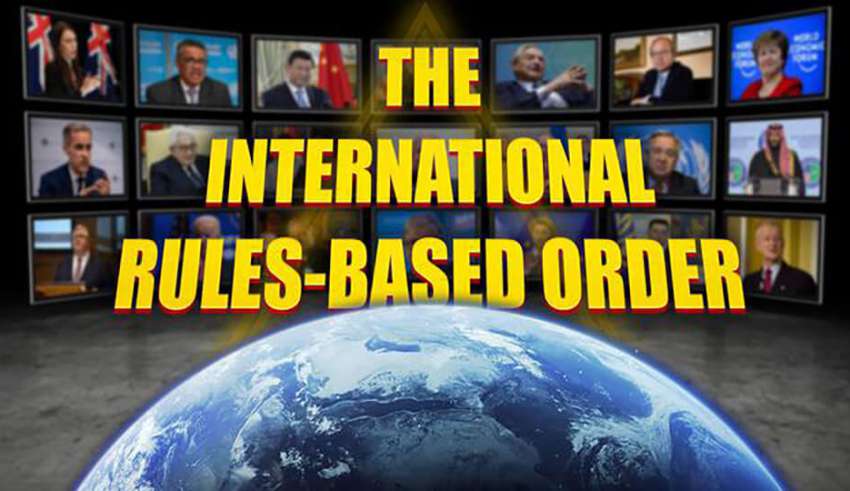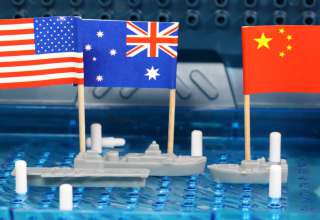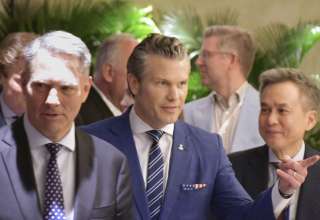By Brian Boyd
This is the first of a two part-series
Introduction
The first half of 2024 saw some reportage that dialogue between the US and China had improved. The discussions apparently were about ensuring ‘hot ‘conflict did not accidentally occur between the two superpowers. A senior US White House official said: “The US has sought increased military-to-military engagement in crisis-prevention procedures with China as a precaution to prevent a direct military clash that could result from these practices”.
On Friday the 31st of May US and Chinese defence officials were in Singapore. On the sidelines of a major security forum, senior US and Chinese leaders held the “first substantive face-to-face talks between the two countries in one and a half years”.
By mid-July however China suspended negotiations with the US on nuclear non-proliferation and arms control in response to ongoing US weapons sales to Taiwan. At the same time Russian and US Defence ministers ‘held a telephone call’ to discuss the risk of ‘’possible escalation” between the two powers. Russia threatened to make European capitals targets from its missile capabilities after the US revealed plans to deploy long-range missiles in Germany.
In the third week of June, during a visit to Australia by China’s Number 2 leader Li Qiang, the two countries committed to improving communications between the Australian Defence Force and China’s People’s Liberation Army, including a bilateral maritime affairs dialogue.
During the visit, Australian Foreign Minister Penny Wong repeated the government narrative that Australia ‘‘faces the worst security situation since World War II’’, adding “we are in a state of permanent contest in the Pacific. That’s the reality”. In the years prior to the visit Minister Wong had promoted the view that “peace” could be worked through, using statecraft with SE Asian nations, emphasising the aim is to achieve: “where no country dominates and no country is dominated…our region should not be a theatre for great power competition”.
Meanwhile the Stockholm International Peace Research Institute (SIPRI) issued a report, mid-year, that stated: “Total military spending is at an all-time high… and for the first time since 2009 we saw spending increase across all five geographical regions”.
The report highlighted that global military expenditure had its steepest increase in 2023, reaching an all-time high of $3.7 trillion. The US, China, Russia and India were the top spenders on defence.
The US-which spends more on its military than any other nation-spent US$916 billion, China lifted military spending to US$296 billion and Russia boosted spending to US$109 billion.
Recently a UN Security Council resolution, that called on all countries to prevent a nuclear arms race in space, was vetoed by Russia. A draft resolution had called for compliance with the “Outer Space Treaty”, which bans the development or deployment of nuclear arms or other weapons of mass destruction in space”.
What is the Australian public to make of all of this?
Spheres of influence
Rivalry, between the great power blocs-US, China, EU, Russia and Britain, is being reported on daily. Many other countries, including Australia, are being roped into this global anxiety. The geopolitical tension between the US and China is dominating this global competition. The essence and starting point of this increasing tension is the clashing of their respective, competing economic spheres of influence.
In turn, the trade and commerce competition between the great power blocs generates “national security” narratives and increasing military posturing, for public consumption.
None of the great power bloc members, especially the US and China, have benign intentions. All intend to defend, and where possible extend, their economic spheres of influence, into the rest of the 21st century.
It is obvious that the US is striving to retain its place as the dominant economic nation on the planet. China makes no secret that it believes its economic expansion and growth over the last two decades in particular, deserves to be recognised and respected.
The US insists that the “rules-based international order” (RBIO), that it established post-World War II, has to remain in place. China now sees the RBIO as restrictive to its global economic ambitions. It is taking steps to form its own economic framework within the global economy.
While some politicians in the US, Britain and Australia insist they remain champions of the “rules-based international order”, the collision between the various spheres of influence is essentially undermining any respect for obeying the so-called ‘rules’.
In recent years, the US, by its own actions, has gutted adherence to the RBIO. It has imposed huge tariffs on Chinese imports and introduced broad protectionist legislation like the Inflation Reduction Act, which subsidises American business in order to protect its domestic, manufacturing base. This quashes any notion that the US, going forward, intends to abide by World Trade Organisation processes.
China is similarly unabashed. It is expanding its global economic presence using mercantilist, state-based enterprises, underwritten by the state.
Commentators now openly suggest that the US should honestly “talk less about the rules-based international order” and more about it is simply defending its imperial presence in world affairs. Currently the US is weaponising trade and commerce and a “decoupling” strategy, in an effort to limit and curtail China’s growth in many key industries. Similarly the EU and Britain are taking steps to counter China’s influence on many of their supply chains.
One commentator recently (Adam Creighton, The Age,’ The rules-based world order? It’s chaos out there’-30/5/24), told readers that, despite politicians fondness for evoking “a rules-based global order…the US, apparently its greatest champion, has used its military and economic might to topple numerous national governments since World War II, when it suited, from Iran and Brazil in the 1950s and 60s to Afghanistan and Iraq this century[could add here Indonesia and Chile and many others]… Washington imposes tariffs arbitrarily, ignores the World Trade Organisation … All powerful nations ignore international law when they deem their interests are at stake-China in the South China Sea, Russia in Ukraine, India in Kashmir… Spare us the rules-based global order rhetoric”.
All great powers argue that their actions are consistent with international law. Yet “lawfare” has become part of the intensifying struggle between them.
One of the ‘hotspots’ of great power rivalry is the South China Sea. China has a territorial claim as part of its sphere of influence aspirations. The US persistently claims that China is violating the UN Convention on the Law of the Sea.
The difficulty for the US is that it has never ratified that particular convention! One commentator pointed out: “So why not accept that America’s primary motivation is not upholding international law for its own sake-but is instead about preventing a crucial trade route from coming under” …China.
Economic hypocrisy
Opposition to China’s trade policies and practices is hardening. A recent meeting of the G7 called out China’s “comprehensive use of non-market policies”, saying these policies undermined jobs, key industries and economic resilience in their countries. The G7 called for “a level playing field” and resolved to protect their own industries from the access capacity coming from China’s factories. Ironically it was not just China that is unnerving key European nations in the G7.
They also recognised that changing US policies were increasingly distorting global trade and capital flows as well. The highly protectionist response by the US to China, for example the massive subsidies arising from US legislation like the Inflation Reduction Act, and the growing tariff wall around the US economy generally, was forcing the Europeans to develop their own protectionist measures. It is worth noting some years ago the US also refused the appointment of new judges to the World Trade Organisation’s Appellate Body, destroying the dispute settling system.
Recently the International Monetary Fund reported that it had been tracking the return of protectionist industrial policy. The international body had been looking at the prime movers in this space, the US, China and the EU. The IMF said out of 2500 new interventions in 2023 1800 caused “trade distorting”, this saw a “75% probability” that a subsidy for a given product by one major economy was met with a subsidy for the same product by another national economy.
It was suggested that this “tit-for-tat retaliation” was challenging the whole global trading system. A comment by Australia’s prime minister Albanese that this was just the evolving “new competition”, was mocked by many.
China’s success in targeting key strategic industries in the world economy is forcing rival power blocs to wind back globalisation per se. Geo-economic fragmentation is subsequently creating security frictions.
In response to increasing US – China competition, the EU power bloc is advancing plans for European “capital markets integration” and the developing of its own broader defence arrangements, in particular air defence. The French for some time have been pushing for Europe to become “an independent military power”, with France offering its nuclear umbrella to cover the western European continent.
According to public commentary, within the US capitalist system, experts are “war gaming” international financial developments as any wrong decisions could impact on the allocation of hundreds of billions of US dollars. US-China relations today have been described as “uncomfortable co-existence”.
“We are in a period where no matter who was president of the United States, it will be a strategic competition… everything Beijing does, is about competition with the United States for a primacy in the region for influence around the world”, ‘And the rest of the world is just going to have to live between the US and China having this battle…’ says one expert.








